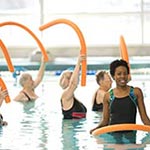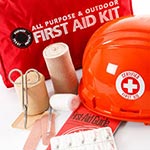Helpful Tips for Adjusting to an Empty Nest

Are you having trouble adjusting to having an empty nest? After eighteen or more years of being there for your kids, caring for their needs on a daily basis, and putting their wants first, it can be difficult to adjust to them leaving home. Many parents struggle with readjusting their relationships with their children once those children become adults. Letting go of control can be difficult. So too can adjusting to living alone again. Whether you are a single parent or married, these five helpful tips can help you make the most of your empty nest:
1. Prepare Yourself
Don’t wait until the day you drop your daughter off at college to admit that she’s all grown up. Even if you don’t want to think about your babies leaving home, you do need to mentally prepare yourself for when the time does come. Remind yourself of all the things you’ve taught them to prepare for success as adults. Know that your kids’ leaving home doesn’t mean your family won’t be close anymore. Instead, think of all of the new family traditions you’ll develop as your kids start their own households.

2. Enjoy Your Freedom
Many empty nesters have a hard time adjusting for one simple reason: they feel guilty enjoying their new-found freedom. You’ve spend decades putting yourself second to the needs of your kids. So there’s no reason to feel guilty about enjoying your free time now! Resume some of the hobbies and interests you had before you wore the mommy or daddy hat 24-7. No doubt your kids will be glad to learn that you’re making the most of this new phase in your life.
3. Start a New Hobby
Remember how you always wanted to learn to play the guitar, or to paint with water-colors, or to grow organic fruits and vegetables? Well now is your chance! As parents of grown children you’ve no doubt spent many hours running kids to and from soccer practice, ballet and music lessons, and other activities. Now it’s your turn to follow your heart and throw yourself full force into whatever it is that interests you. So get out there and follow your passions.
4. Befriend Other Empty Nesters
Do you have friends or acquaintances that have also recently become empty nesters? If so, then there’s no one better to understand what you’re currently going through. Make plans to meet up for conversations and companionship. Now that you’ve got more time to spend on your friendships, plan fun things to do to take your minds off of your anxieties. Even better, make new friends with those who’ve already adjusted to empty nest-hood and let their advice and understanding help you adjust too.
5. Relax, You’re Still a Parent
Just because your kids have left home, that doesn’t mean they don’t need you anymore. Sure, they no longer need you to drive them to school and extracurricular activities, give them an allowance, or tuck them in at night. But your children will need you to be their parent for the rest of their lives. The parent-child relationship can be very fulfilling as you learn to relate to your adult son or daughter in an entirely new way. So don’t allow your "empty nest syndrome" to strip you of feeling like you’re still a parent.
Remember, you’re not the only parent who’s ever struggled with uncertainty of how to cope with your kids leaving home. Just like an end of any phase in life, becoming an empty nester means adjusting to new circumstances. But it also means opening the door to a new phase of your life full of new possibilities and experiences.
You might also be interested in...
-
 4 Important Safety Measures For Seniors
4 Important Safety Measures For Seniors
-
 5 Scams Seniors Should Watch Out For
5 Scams Seniors Should Watch Out For
-
 5 Telltale Signs It’s Time To Stop Driving
5 Telltale Signs It’s Time To Stop Driving
-
 6 Sports Seniors Can Enjoy
6 Sports Seniors Can Enjoy
-
 7 Ways To Feel Younger
7 Ways To Feel Younger
-
 Aging In America
Aging In America
-
 The Best Low Maintenance Pets For Seniors
The Best Low Maintenance Pets For Seniors
-
 Budget-Friendly Vacations with Perks for Seniors
Budget-Friendly Vacations with Perks for Seniors
-
 Can Eating Cherries Alleviate Arthritis?
Can Eating Cherries Alleviate Arthritis?
-
 How To Choose A Medicare Supplement Plan
How To Choose A Medicare Supplement Plan
-
 Could You Live On Social Security?
Could You Live On Social Security?
-
 Does Your Elderly Loved One Need More Care than You Can Give
Does Your Elderly Loved One Need More Care than You Can Give
-
 Is Your Elderly Parent Feeling Lonely
Is Your Elderly Parent Feeling Lonely
-
 Five Health Tips for Men over 50
Five Health Tips for Men over 50
-
 Five Health Tips for Women over 50
Five Health Tips for Women over 50
-
 Five Tips for Helping Seniors Stay Active
Five Tips for Helping Seniors Stay Active
-
 Helpful Tips for Adjusting to an Empty Nest
Helpful Tips for Adjusting to an Empty Nest
-
 Home Safety Checklist for Single Seniors
Home Safety Checklist for Single Seniors
-
 Home Safety Tips for Seniors Living Alone
Home Safety Tips for Seniors Living Alone
-
 How Seniors Can Improve Their Posture
How Seniors Can Improve Their Posture
-
 How Seniors Should Stock Their Kitchen
How Seniors Should Stock Their Kitchen
-
 How to Be a Good Husband in Retirement
How to Be a Good Husband in Retirement
-
 How to Change Your Life in 10 Days
How to Change Your Life in 10 Days
-
 How to Do Container Gardening for Seniors
How to Do Container Gardening for Seniors
-
 How to Find Happiness in Your Senior Years
How to Find Happiness in Your Senior Years
-
 How to Grow Easy Houseplants for Seniors
How to Grow Easy Houseplants for Seniors
-
 How To Help Your Senior Parent Stay Mentally Healthy and Happy
How To Help Your Senior Parent Stay Mentally Healthy and Happy
-
 How to Simplify Housekeeping for Seniors
How to Simplify Housekeeping for Seniors
-
 How to Stay Looking Sharp for Senior Men
How to Stay Looking Sharp for Senior Men
-
 The Importance Of Keeping Seniors Hydrated
The Importance Of Keeping Seniors Hydrated
-
 Is Chiropractic Care Safe For Seniors?
Is Chiropractic Care Safe For Seniors?
-
 Is Long-Term Care Insurance Necessary
Is Long-Term Care Insurance Necessary
-
 Patio Gardening For Seniors
Patio Gardening For Seniors
-
 Preparing For Retirement
Preparing For Retirement
-
 Pros and Cons of Living in a Retirement Community
Pros and Cons of Living in a Retirement Community
-
 How To Protect Seniors Against Identity Theft
How To Protect Seniors Against Identity Theft
-
 Senior Life Insurance Pays for Funeral Costs
Senior Life Insurance Pays for Funeral Costs
-
 Senior Summer Safety
Senior Summer Safety
-
 How Seniors Benefit From Adopting Senior Pets
How Seniors Benefit From Adopting Senior Pets
-
 How Seniors Can Decorate With Unique Framed Art
How Seniors Can Decorate With Unique Framed Art
-
 Seniors & The Social Life
Seniors & The Social Life
-
 Seven Power Foods for Seniors
Seven Power Foods for Seniors
-
 Tips for Seniors: How to Upgrade Your Bed for a Better Night's Sleep
Tips for Seniors: How to Upgrade Your Bed for a Better Night's Sleep
-
 Tips For Seniors On Improving Your Immune System
Tips For Seniors On Improving Your Immune System
-
 Tips for Seniors on How to Stock a Gift Drawer
Tips for Seniors on How to Stock a Gift Drawer
-
 Top Travel Safety Tips for Seniors
Top Travel Safety Tips for Seniors
-
 Understanding Medicare Part D Plans
Understanding Medicare Part D Plans
-
 Reasons Why An Elderly Loved One May Not Be Eating
Reasons Why An Elderly Loved One May Not Be Eating
-
 Why Seniors Need The Flu And Pneumonia Vaccines
Why Seniors Need The Flu And Pneumonia Vaccines
-
 You Won't Believe How Easily You Can Stall Aging
You Won't Believe How Easily You Can Stall Aging
-
 How To Choose Low Income Housing For Seniors
How To Choose Low Income Housing For Seniors
-
 8 Unique Gifts For Seniors
8 Unique Gifts For Seniors
-
 Activities For Senior Citizens
Activities For Senior Citizens
-
 7 Winter Safety Tips For Seniors
7 Winter Safety Tips For Seniors
-
 5 Questions To Ask When Considering A Continuing Care Retirement Community
5 Questions To Ask When Considering A Continuing Care Retirement Community
-
 How Long Should You Wait To Claim Social Security
How Long Should You Wait To Claim Social Security
-
 Signs And Symptoms Of A UTI In Seniors
Signs And Symptoms Of A UTI In Seniors
-
 How To Deal With The Emotions Of Retirement
How To Deal With The Emotions Of Retirement
-
 How To Help Seniors Fight Depression
How To Help Seniors Fight Depression
-
 How Seniors Can Save More Money
How Seniors Can Save More Money
-
 What Services To Expect From Assisted Living Centers
What Services To Expect From Assisted Living Centers
-
 How To Live A Long Life
How To Live A Long Life
-
 Top 3 Dental Risks For Seniors
Top 3 Dental Risks For Seniors
-
 Choosing The Right Assisted Living Facility
Choosing The Right Assisted Living Facility
-
 Different Ways To Ease Knee Pain
Different Ways To Ease Knee Pain
-
 Why Assisted Living Centers Allow Pets
Why Assisted Living Centers Allow Pets
-
 4 Surprising Health Hazards You May Have In Your Home
4 Surprising Health Hazards You May Have In Your Home
-
 5 Mental Exercises To Increase Happiness
5 Mental Exercises To Increase Happiness
-
 Why Seniors And Caregivers Need To Laugh More
Why Seniors And Caregivers Need To Laugh More
-
 How To Reverse The Effects Of Arthritis
How To Reverse The Effects Of Arthritis
-
 6 Exercises That Won’t Hurt Your Joints
6 Exercises That Won’t Hurt Your Joints
-
 Driving Safety Tips For Seniors
Driving Safety Tips For Seniors
-
 4 Natural Ways To Combat Feeling Dizzy
4 Natural Ways To Combat Feeling Dizzy
-
 Senior Life Insurance is a Worthwhile Investment
Senior Life Insurance is a Worthwhile Investment
-
 Tax Breaks Every Senior Should Know
Tax Breaks Every Senior Should Know
-
 How To Make Money During Retirement
How To Make Money During Retirement
-
 5 Phone Scams Targeting Seniors Now
5 Phone Scams Targeting Seniors Now
-
 How Technology Can Keep Seniors Safe
How Technology Can Keep Seniors Safe
-
 How To Not Go Wrong When Choosing A Nursing Home
How To Not Go Wrong When Choosing A Nursing Home
-
 Disaster Checklist For Seniors
Disaster Checklist For Seniors
-
 How Visiting Seniors Often Can Keep Them Healthier
How Visiting Seniors Often Can Keep Them Healthier
-
 How To Make A Senior’s Day
How To Make A Senior’s Day
-
 Internet Safety Tips Every Senior Should Know
Internet Safety Tips Every Senior Should Know
-
 5 Ways To Strengthen Aging Bones And Muscles
5 Ways To Strengthen Aging Bones And Muscles
-
 How Senior Yoga Can Be A Lifesaver
How Senior Yoga Can Be A Lifesaver
-
 Live Longer By Volunteering
Live Longer By Volunteering
-
 Managing Pain For Seniors
Managing Pain For Seniors
-
 6 Everyday Ways For Seniors To Stay Active
6 Everyday Ways For Seniors To Stay Active
-
 Bad Habits That Make You Age Faster
Bad Habits That Make You Age Faster
-
 Fall Prevention For Seniors
Fall Prevention For Seniors
-
 6 Ways For Seniors To Budget For Life Insurance
6 Ways For Seniors To Budget For Life Insurance
-
 Summertime Resources For Seniors & Caregivers
Summertime Resources For Seniors & Caregivers
-
 5 Simple Ways Seniors Can Get Free Help
5 Simple Ways Seniors Can Get Free Help
-
 Navigating Ride Programs for Seniors
Navigating Ride Programs for Seniors
-
 What’s Preventing You from Receiving Medicare Supplemental Insurance?
What’s Preventing You from Receiving Medicare Supplemental Insurance?
-
 Can You Outlive Your Life Insurance?
Can You Outlive Your Life Insurance?
-
 Medicare Part B Plus Medigap vs a Medicare Advantage Plan: Which is better?
Medicare Part B Plus Medigap vs a Medicare Advantage Plan: Which is better?
-
 3 Things to Know about Senior Life Insurance
3 Things to Know about Senior Life Insurance
-
 Do Medicare Supplement Plans Cover Pre-existing Conditions
Do Medicare Supplement Plans Cover Pre-existing Conditions
-
 What is Final Expense Insurance and Who Should Buy It?
What is Final Expense Insurance and Who Should Buy It?
-
 Does Medicare Pay for Prescriptions?
Does Medicare Pay for Prescriptions?
-
 Advocating for a Hospitalized Parent or Grandparent
Advocating for a Hospitalized Parent or Grandparent
-
 How Do You Choose the Best Medicare Coverage?
How Do You Choose the Best Medicare Coverage?
-
 Key Signs it’s Time to Get In-Home Care or Move to an Assisted Living Facility
Key Signs it’s Time to Get In-Home Care or Move to an Assisted Living Facility

 Insurance products are available in New York from
Insurance products are available in New York from  Insurance products are available in your state from
Insurance products are available in your state from 












































































































